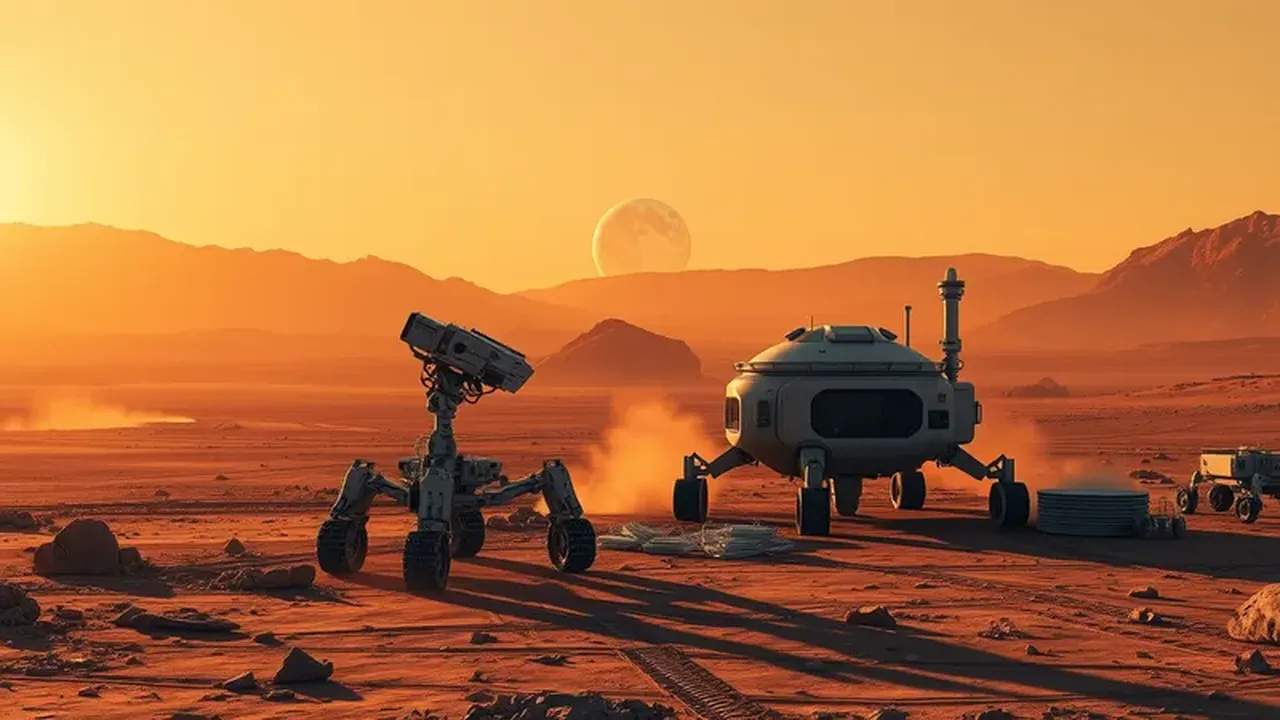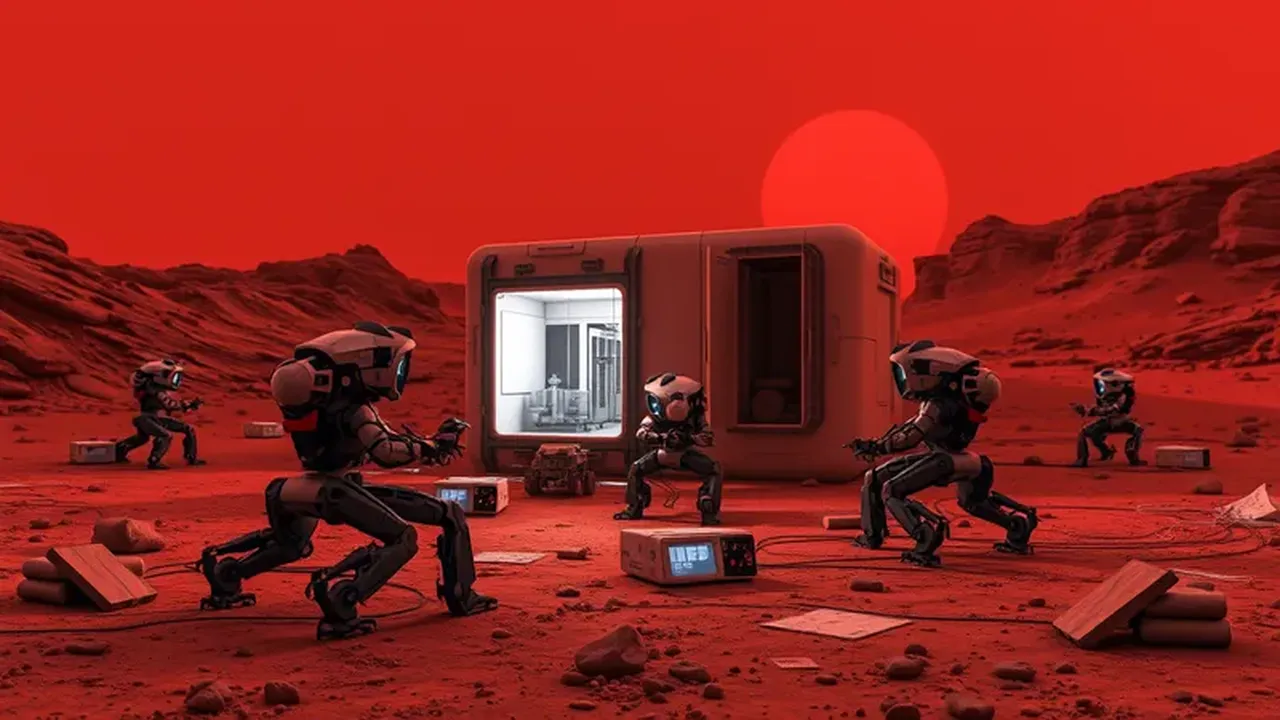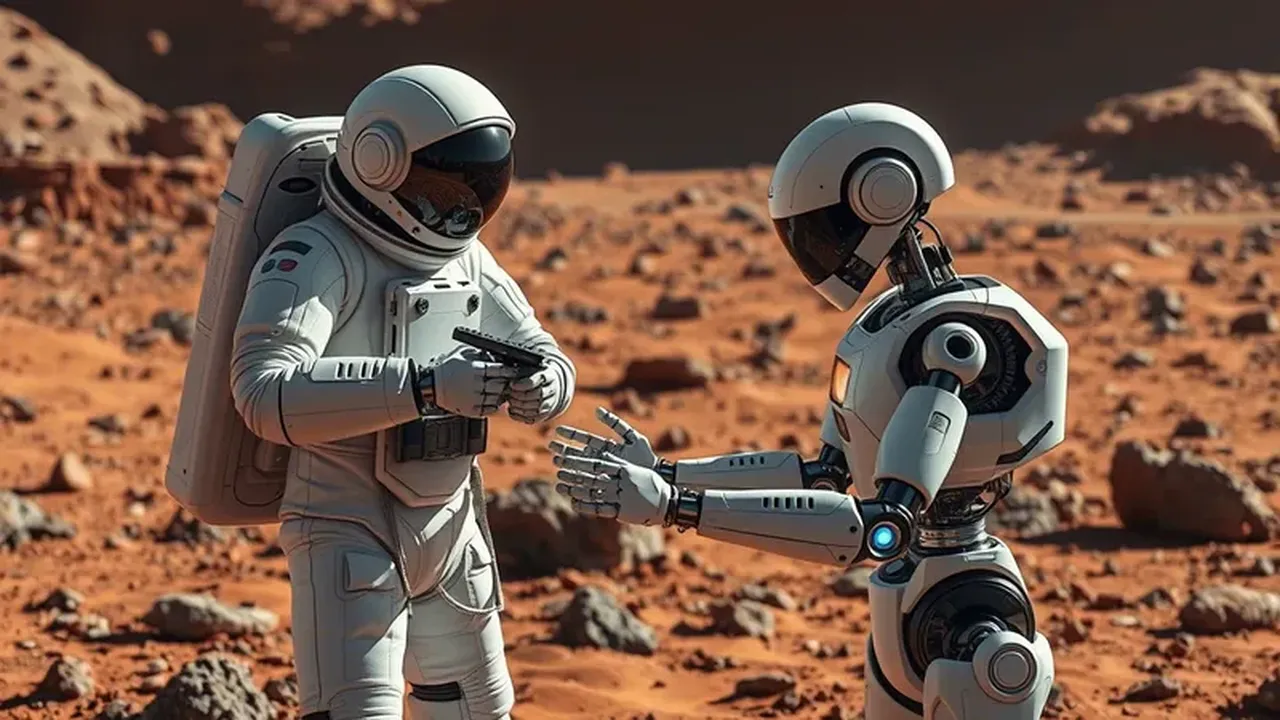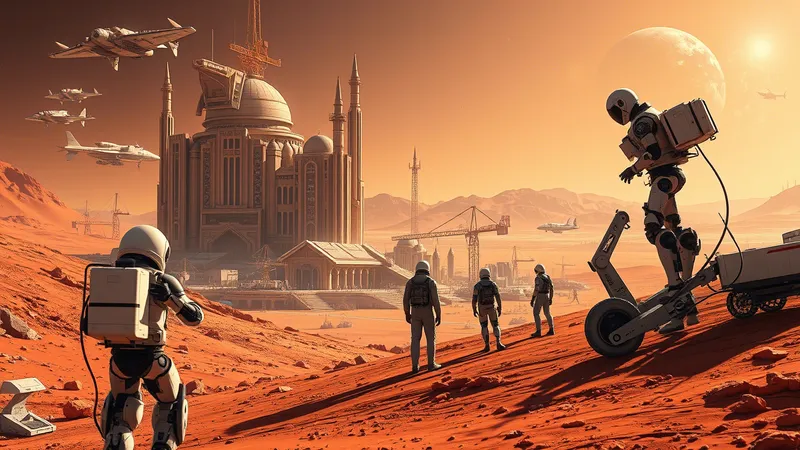Martian Chronicles 2.0: Human vs. AI in the Battle for the Red Planet
Red dust under the tracks of an autonomous builder, lasers outlining a future base, and the distant gleam of Earth in the Martian sky... The picture of Mars colonization, recently the domain of science fiction writers, is rapidly taking on features of reality. And the main question of this new space race is: who will be the pioneer, who will be the first to build a city on another planet – a human of flesh and blood, or their creation, artificial intelligence, controlling an army of robots? This is not just a technological challenge; it is a question about the future of our species and our place in the Universe.

The Dream of Stars: From Tsiolkovsky to Autonomous Robots
Humanity's aspiration for the stars has deep roots. From Konstantin Tsiolkovsky's bold theories, through the launch of the first satellite and Yuri Gagarin's legendary flight, to the Moon landing – each step opened new horizons. Today, we stand on the threshold of a new era where artificial intelligence (AI) and advanced robotics are beginning to play a key role in expansion beyond Earth. The term "AI astronaut" is ceasing to be a metaphor. We are talking about fully autonomous systems capable of analyzing the environment, learning, making independent decisions, and performing the most complex engineering tasks without direct human command. Modern Mars rovers and lunar base concepts already demonstrate elements of such autonomy, and the development of more complex robotic systems often relies on flexible frameworks like ROS (Robot Operating System), which allow for the creation of universal software for various robots.
The Great Construction on Mars: AI versus Human – Strengths and Weaknesses
So, who will be more effective in the task of colonization – humans or machines?

Arguments "FOR" AI Colonizers
- Endurance and Efficiency: Robots do not need air, water, and food in the same volumes as humans. They are much more resistant to radiation, extreme temperatures, and vacuum. They can work around the clock, tirelessly, for decades.
- Autonomous Construction and Manufacturing: AI can manage entire robotic complexes performing, for example, 3D printing of structures from local Martian regolith, deploying solar panels, drilling for water, and creating primary infrastructure even before humans arrive. Imagine mobile robots, similar to Boston Dynamics Spot, patrolling the territory, conducting inspections, or delivering tools on the construction site of a Martian base, working in conditions hazardous to humans.
- Research and Terraforming Preparation: AI systems are ideal for long-term data collection and analysis of Mars's atmosphere, geology, and potential resources. In the distant future, they could even manage the complex processes of the initial stages of terraforming.
- Reduced Risk to Human Lives: Sending robots for reconnaissance and performing the most dangerous work in the initial stages of colonization avoids risking precious human lives.
Arguments "FOR" Human Colonizers (and AI's limitations)
- Adaptability and Out-of-the-Box Thinking: The human brain possesses a unique ability for intuition, creativity, and decision-making in completely unforeseen situations where any, even the most perfect, algorithm might be powerless.
- Repair, Maintenance, and Improvisation: In a remote colony, critical equipment failure is inevitable. A human on-site can analyze an emergency, repair complex machinery, or find a workaround by improvising with available means.
- The Purpose and Meaning of Expansion: A philosophical, yet important, aspect. For whom are we colonizing space? Does a fully robotic colony without human presence, without a human gaze upon a Martian sunset, make sense?
- Scientific Discoveries and Research: The presence of a human scientist on another planet opens up possibilities for observations and experiments that are difficult to fully automate.
The most probable and productive scenario seems to be a symbiosis: AI robots as tireless pioneers, scouts, and builders, creating a safe and functional bridgehead. Humans then arrive at a prepared base to conduct complex research, develop the colony, and ultimately, inhabit the new world.

A City on Mars: Vision of the Future and Humanity's Role
What might this city look like, and who will inhabit it?
- AI Vanguard: Robots build and maintain autonomous bases, perhaps even entire cities. Humans act as remote operators, supervisors, or occasional expeditionary researchers.
- Human-Machine Civilization: Humans and advanced AI (possibly possessing some form of self-awareness) coexist and cooperate on Mars and beyond, forming a new type of interplanetary society.
- AI as a Tool for Human Expansion: AI and robots are, above all, tools that allow humans to settle the Solar System, and then beyond, faster, safer, and more efficiently.
These scenarios raise profound ethical questions: about the rights and status of superintelligent AI, if it is created; about preserving "humanity" in conditions of total technologization; about the ultimate goals of our space odyssey. Will complete reliance on AI in space lead to an atrophy of the human spirit of adventure and exploration?
To the Stars – Together or Separately? The Choice of a New Generation
The question "human or machine" in the context of conquering Mars and deep space most likely has an answer in their synergy. A city on Mars, built through the efforts of AI and inhabited by humans, will become a symbol not of competition, but of the greatest collaboration. Technologies, however perfect they may be, remain tools. The goals, dreams, and values we invest in these tools will determine the future not only of space expansion but also of humanity itself.
The responsibility for shaping this future, for choosing the path to the stars, lies with us and with new generations of explorers, scientists, and dreamers. Artificial intelligence can become our most powerful ally on this grand journey.
